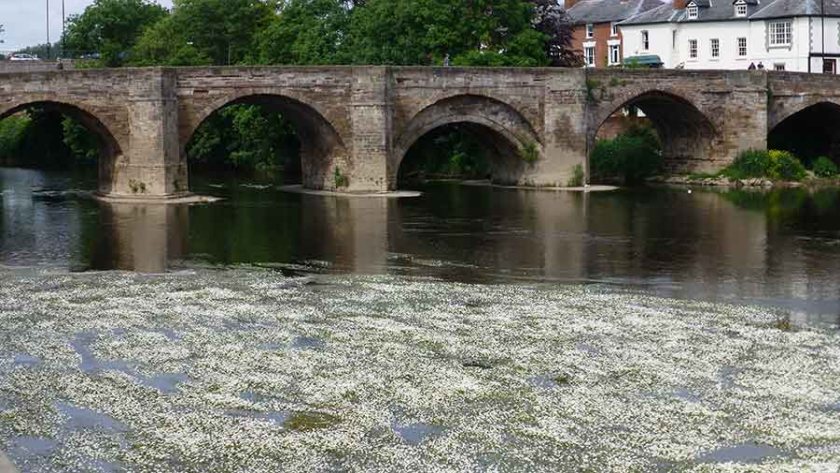
A legal claim potentially worth hundreds of millions of pounds to compensate people living near River Wye for pollution allegedly caused by poultry farms has been extended to include US food producer Cargill.
Cargill subsidiary Avara Foods, one of the UK’s biggest food producers, was first to be named as a defendant in the civil claim launched in March by law firm Leigh Day.
The legal claim aims to compensate thousands of people living in the catchment likely to have been affected by degradation of the River Wye and its tributaries.
The claim alleges that "industrial scale chicken farming in the catchment area is polluting the River Wye and surrounding land".
Now Leigh Day says there is 'mounting evidence' that Avara’s parent company Cargill should also be held accountable for pollution to the river.
Leigh Day alleges that Cargill's place in the Avara food chain makes it responsible for excess phosphorous that is the main cause of pollution in the Wye and its tributaries.
Cargill imports soy beans to the UK to be processed in Liverpool, believed to be the major supplier of reduced soy which is mixed with wheat and other ingredients at feed mills in Hereford to create phosphorous-rich chicken feed for farms contracted by Avara to rear and supply.
It is excess phosphorous in chicken manure which leaches into the soil and into water courses, causing pollution, the legal claim will allege.
As Avara claims its broiler hen feed includes 25% soy, Leigh Day believes the Cargill-owned export could make up as much as 375 tonnes per day of the phosphorous-rich feed processed in Hereford mills for consumption by Avara contract chicken suppliers.
Soy bean meal, like other seeds used to create animal feed, is rich in phytic acid (or phytate), a major storage form of phosphorus, which poultry are unable to digest and so excrete.
Cargill has faced similar claims in the US as a result of polluting the Illinois River due to the same practice of high intensive poultry farming.
In 2023, the Oklahoma Court ruled that Cargill polluted the Illinois River by spreading chicken manure on land so that it then leached into the river’s watercourse.
The judge in that case found that Cargill knew or should have known that using poultry waste as fertiliser posed a risk to waterways.
The UK claimants will similarly allege that Cargill and Avara Foods knew that the outcome of intensive poultry farming would cause the pollution of the River Wye but continued with their operations anyway.
Avara Foods says it is committed to playing its part in the restoration of the River Wye “by taking accountability for the poultry manure that originates from it supply chain... but reversing the decline of the river is beyond the means of any single organisation”.
The civil claim, which is being supported by charity River Action, is being handled by a team led by Leigh Day partner Oliver Holland.
He said: “We intend to include Cargill in this legal action because we believe they should also bear responsibility for bringing phosphorus rich soy into the UK and into the Wye Catchment area.
"They have done this despite knowing that such action will cause environmental devastation to the River Wye having been found liable for the same practice in the US courts.
"Instead of learning from their past mistakes they are simply replicating the same environmental damage in the UK that they have been liable for in the US and should be held equally responsible for their actions as Avara.”
The law firm is currently adding claimants to the legal claim which it intends to file at the High Court in London later this year.
